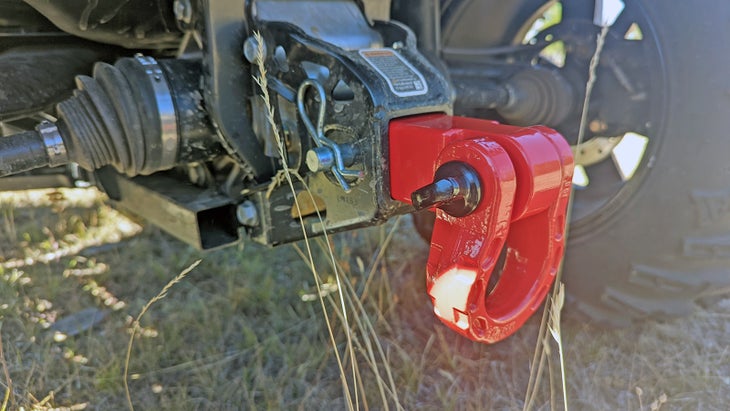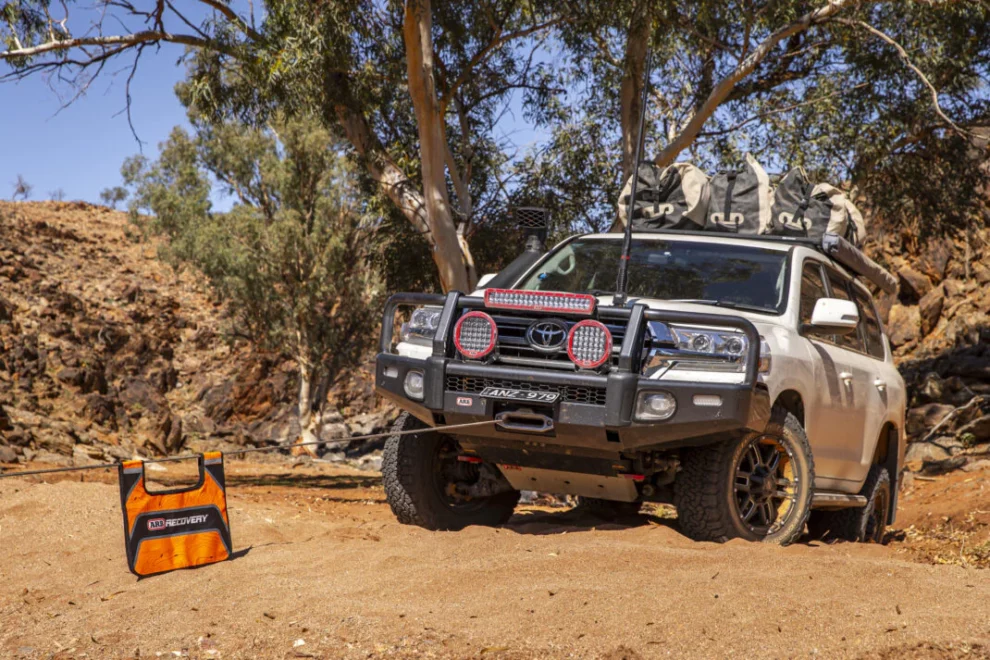Embarking on an off-road adventure is more than just an adrenaline rush—it’s a journey into the wild where the trail is as unpredictable as it is exhilarating. While the thrill of conquering rugged landscapes fuels the off-road spirit, it’s essential to be prepared for any situation. The key to navigating these uncharted terrains lies in having the right recovery gear. Ensuring that your vehicle can tackle obstacles and recover from unexpected challenges is crucial for a successful and safe off-road experience.
Understanding the Importance of Recovery Gear
Off-roading takes you far from the safety and predictability of paved roads. Whether you’re traversing muddy trails, sandy dunes, or rocky paths, the potential for getting stuck or encountering obstacles is high. Recovery gear isn’t just for emergencies; it’s your lifeline to keep your adventure moving forward. Properly equipped vehicles not only enhance safety but also maximize the enjoyment of the off-roading experience.

The Essentials of Recovery Gear
Winch
A winch is arguably the most crucial piece of recovery gear. Mounted to the front of your vehicle, it provides the muscle needed to pull your vehicle out of sticky situations. When choosing a winch, consider its load capacity, ensuring it matches or exceeds the weight of your vehicle. Electric winches are popular due to their ease of use, but hydraulic winches offer greater power for extreme conditions.
Recovery Straps
Recovery straps are designed to stretch and store energy, providing a powerful snap-back effect that can help free a stuck vehicle. Unlike tow straps, which are rigid, recovery straps are more flexible and absorb kinetic energy. When selecting recovery straps, ensure they have a high breaking strength and are equipped with reinforced loops for secure attachment.
D-Shackles and Soft Shackles
D-Shackles, also known as bow shackles, are essential for connecting recovery straps to your vehicle’s recovery points. Made from high-strength steel, these shackles provide a secure and reliable connection. Soft shackles, made from synthetic rope, are a lighter and safer alternative. They are easier to handle and reduce the risk of damage to your vehicle’s recovery points.
Snatch Block
A snatch block is a pulley-like device used in conjunction with a winch to change the direction of the pull or to increase the pulling power. By redirecting the winch cable through a snatch block, you can effectively double the winch’s capacity, making it easier to recover heavily stuck vehicles. Ensure the snatch block is rated for the load and compatible with your winch.
Hi-Lift Jack
The Hi-Lift Jack is a versatile and indispensable tool for off-road recovery. It can lift your vehicle to free it from obstacles, change a tire, or provide a stable base for winching. Hi-Lift Jacks are adjustable and can be used in various terrains, making them a valuable addition to your recovery gear arsenal. Remember to use the jack on a stable and flat surface to prevent accidents.
Additional Recovery Tools
Traction Boards
Traction boards are essential for gaining traction in sandy, muddy, or snowy conditions. These boards provide a solid grip for your tires, allowing you to drive out of challenging situations. They are lightweight, easy to store, and can be quickly deployed when needed. Look for boards made from durable materials that can withstand the weight of your vehicle.
Shovel
A sturdy shovel is an often-overlooked but highly valuable recovery tool. It can be used to dig out tires, clear debris, or create a stable base for recovery equipment. Opt for a foldable shovel for easy storage and convenience. Ensure the shovel is made from high-quality materials to withstand rigorous use.
Tire Repair Kit
A flat tire can quickly derail your off-road adventure. A tire repair kit allows you to fix punctures on the trail, saving you from the hassle of changing a tire in tough conditions. The kit should include tire plugs, a reaming tool, and an insertion tool. Additionally, a portable air compressor is essential for inflating tires after repairs or adjustments.
Preparing Your Vehicle for Recovery
Equipping your vehicle with recovery gear is only part of the preparation. Ensuring your vehicle is properly set up to use this gear is equally important.
Recovery Points
Recovery points are reinforced areas on your vehicle designed to withstand the stresses of recovery operations. Ensure your vehicle has dedicated recovery points both at the front and rear. These points should be easily accessible and clearly marked. Avoid using tow balls or hitch points as recovery points, as they are not designed to handle the load and can cause serious injuries if they fail.
Vehicle Weight Distribution
Proper weight distribution in your vehicle is crucial for effective recovery. Store heavy items low and centered to maintain stability and prevent your vehicle from becoming top-heavy. Secure all gear to prevent it from shifting during recovery operations.
Safety First
Safety should always be your top priority during off-road recovery. Wear gloves to protect your hands from cuts and abrasions. Stand clear of winch cables and recovery straps under tension, as they can snap and cause serious injuries. Always communicate with your recovery team and use hand signals or two-way radios to coordinate efforts.
Conclusion: Equip and Empower
Navigating the challenges of off-road adventures requires a combination of preparation, skill, and the right recovery gear. Equipping your vehicle with essential recovery tools ensures that you’re ready to tackle any obstacle and continue your journey with confidence. Whether you’re a seasoned off-roader or a newcomer to the world of rugged terrains, investing in high-quality recovery gear is a commitment to safety and success.
Remember, the key to a memorable and enjoyable off-road experience lies in being prepared for the unexpected. Equip yourself with the right gear, educate yourself on its use, and embrace the thrill of the adventure. Off-roading isn’t just about reaching the destination; it’s about conquering the journey, one challenge at a time.
















Add Comment